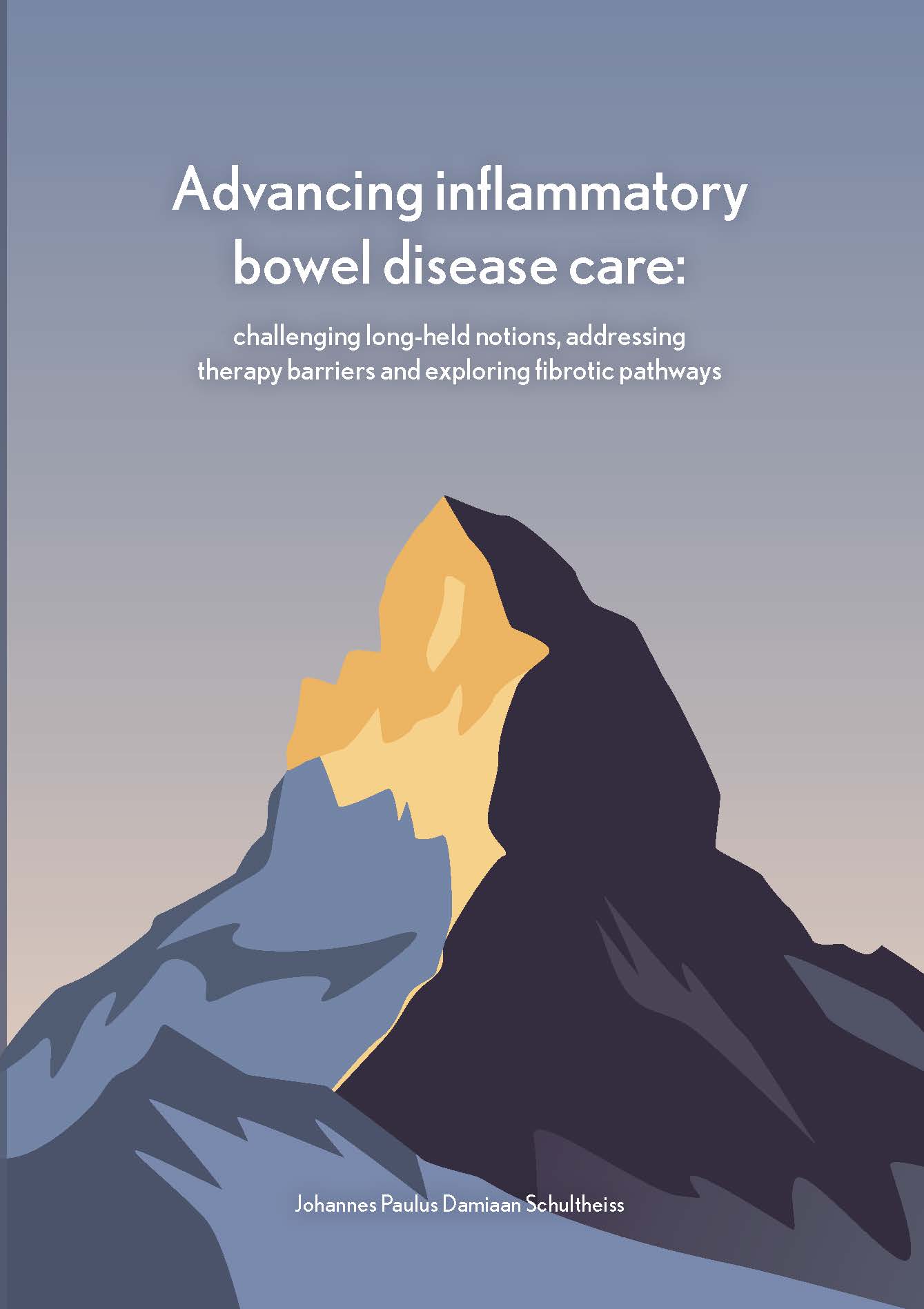In his PhD thesis, Hans-Paul Schultheiss, MD (UMC Utrecht) explored the optimization of anti-TNF therapy for inflammatory bowel disease (IBD). He found in a real-world study setting that the risk of treatment discontinuation reduces over time, while female sex appears to link to earlier withdrawal. Discontinuing immunomodulators did not impact treatment failure. Schultheiss also identified a possible role of CXCL4 in Crohn’s-related fibrosis, offering new insights into therapy and disease mechanisms.
Inflammatory bowel diseases (IBD), including Crohn’s disease (CD) and ulcerative colitis (UC), are chronic conditions characterized by relapsing and remitting inflammation. Biological therapies, particularly anti-TNF agents such as infliximab, have revolutionized treatment of IBD, yet many patients still experience insufficient benefit due to primary non-response, secondary loss of response, or early discontinuation due to side effects. Hans-Paul Schultheiss, MD, PhD (Department of Gastroenterology and Hepatology, UMC Utrecht) conducted his PhD research, focusing in a real-world setting on optimizing the effectiveness and long-term use of anti-TNF therapy in IBD.
Factors influencing anti-TNF therapy: Schultheiss evaluated various factors that affect the sustained use of anti-TNF therapy across several clinical studies. One significant finding was that longer treatment duration was associated with a lower risk of treatment discontinuation. In contrast, female patients were more likely to withdraw earlier due to adverse events, suggesting sex-related differences in drug tolerance or side effect profiles.
Impact of stopping immunomodulators: The thesis also examined the effects of discontinuing immunomodulators (thiopurines or methotrexate) in patients who were successfully treated with combination therapy (anti-TNF plus immunomodulator). While stopping immunomodulators led to an increase in antibody formation, it did not result in higher treatment failure rates. This finding suggests that some patients may safely discontinue immunomodulators without affecting the long-term effectiveness of anti-TNF therapy.
Switching between infliximab formulations: Schultheiss also explored the clinical need for switching from biosimilar to originator infliximab (Remicade). Though this was rarely required, when indicated, the switch was found to be safe and effective for patients. This insight is important for clinicians navigating biosimilar therapies in IBD management.
Treatment adherence and digital tools: Another important factor identified was treatment adherence. While adherence is a modifiable determinant of therapeutic success, the study found that the use of an electronic device with digital reminders did not improve patient adherence. This suggests that other interventions might be necessary to enhance adherence in IBD patients undergoing anti-TNF therapy.
Role of CXCL4 in Crohn’s disease: The thesis also included a translational study investigating the role of the chemokine CXCL4 in Crohn’s-related fibrosis. Schultheiss discovered increased CXCL4 gene expression in patients with active inflammation and fibrosis. Notably, CXCL4 deposits were found in so-called L cells (hormone-producing enteric cells) within fibrotic and inflamed tissue samples. This suggests a possible contribution of CXCL4 in the pathogenesis of fibrosis in CD.
Hans-Paul Schultheiss concludes: “On the basis of our findings in real-world studies, we propose that advancements in treatment of IBD focus on earlier use of biologics, optimized anti-TNF therapy continuation, safe immunomodulator withdrawal, and managing biosimilar switches. With these strategies we aim to improve long-term outcomes while balancing safety and costs, moving towards more personalized and effective care for our patients.”
“On the basis of our findings in real-world studies, we propose that advancements in treatment of IBD focus on earlier use of biologics, optimized anti-TNF therapy continuation, safe immunomodulator withdrawal, and managing biosimilar switches.”
Hans-Paul Schultheiss, MD (1992, Amersfoort) defended his PhD thesis on November 6, 2025 at Utrecht University. The title of the thesis was “Advancing inflammatory bowel disease care: challenging long-held notions, addressing therapy barriers and exploring fibrotic pathways”. Supervisor was Prof. Bas Oldenburg, MD PhD en co-supervisor was Herma Fidder, MD PhD (both Department of Gastroenterology and Hepatology, UMC Utrecht). Hans-Paul Schultheiss works as a resident in gastroenterology at the Sint Antonius Hospital in Nieuwegein.

